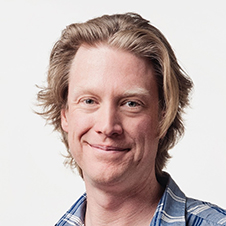Understanding the future of fjords and their ability to soak up carbon is one of nine University of Otago scientific research projects receiving more than $16 million from the Ministry of Business, Innovation and Employment (MBIE).

Associate Professor Christopher Moy
The Otago allocation is part of a wider $244 million investment in 69 scientific research projects through the Endeavour Fund announced on Tuesday morning.
Associate Professor Christopher Moy from the Department of Geology secured Otago's sole Research Programme grant, in partnership with Otago Honorary Professor Gary Wilson, now GM Strategy for GNS Science. Their five-year, $8.6 million project is looking to find a pathway towards carbon neutrality by analysing the future of Fiordland, one of the country's largest natural carbon sinks.
While carbon sinks act like sponges to soak up carbon compounds, not much is known about how factors such as human activity or climate change could trigger a tipping point and reduce the effectiveness of fjords to absorb carbon in the future.
Associate Professor Moy says the answers lie in an extensive multi-disciplinary programme, a collaboration between Ngāi Tahu, Fiordland Marine Guardians, and a team of New Zealand and international scientists.
"These unknown aspects limit our ability to undertake effective environmental management strategies, determine how the system will respond to future climate change. As more pressure is placed on the Manapouri Power Station (MPS) to meet our 100 per cent renewable electricity ambitions, we need to determine how variability in introduced freshwater threatens carbon storage in Doubtful Sound.
"Through a unique observation and modelling program, our work will provide the scientific basis to determine how future changes in fjord circulation, driven by changing climate and changes in MPS generation capacity, will impact the fjord carbon sink."
Eight Otago researchers were also successful in the Endeavour Fund's Smart Ideas grants, which are each valued at $1 million over three years.

Right to left: Professor Peter Dearden, Professor Warwick Duncan, and Professor Greg Anderson.
Professor Peter Dearden from the Department of Biochemistry has been awarded a grant to investigate how biocontrol can help control damaging invasive pests, while Professor Warwick Duncan from the School of Dentistry has secured funding to investigate how mānuka oil can help regenerate bones in oral wounds such as periodontitis. Professor Greg Anderson from the Department of Anatomy is looking to use cell-targeting to sterilise pests as a form of humane control, while Dr Augustine Chen and Dr Robert Day from the Department of Biochemistry is looking to a new method to detect early-stage cancer through a new DNA diagnostic test.

Right to left: Dr Augustine Chen, Dr Robert Day, and Associate Professor Harald Schewefel.
Associate Professor Harald Schewefel from the Department of Physics is looking to use light to detect thermal radiation as part of a wider pathway to creating space-ready hardware, while Dr Simon Jackson from the Department of Microbiology and Immunology is creating a natural probiotic seed coating to make seed inoculation more effective. Professor Claudine Stirling from the Department of Geology has received funding to trace heavy metal pollutants with metal isotope 'fingerprinting' technology. Professor Neil Gemmell receives $1 million to explore pest management using environmental DNA (eDNA).

Right to left: Dr Simon Jackson, Professor Claudine Stirling, and Professor Neil Gemmell
University of Otago Deputy Vice-Chancellor (Research) Professor Richard Blaikie is proud of the successful research teams.
"These programmes will have a considerable economic and environmental impact on Aotearoa into the future," Professor Blaikie says.
"We would like to extend our congratulations to each of the teams, and wish them all the very best in their work."






